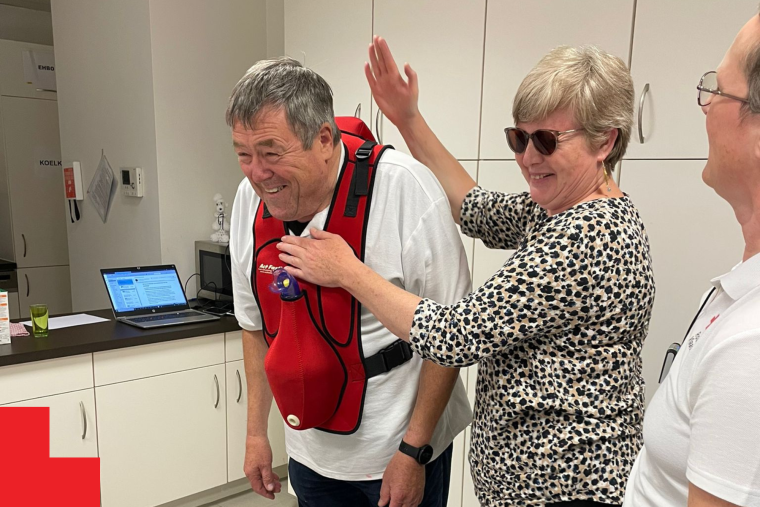Braille League and Belgian Red Cross-Flanders launch first-aid training for blind and visually impaired individuals

Belgian Red Cross-Flanders, which offers free first aid courses to some 50,000 people every year, is launching an adapted training course for blind and visually impaired people in collaboration with the Braille League. The need for this training proved great: until now, traditional first aid training was not fully accessible to this target group.
Adapted First Aid Training
Blind and visually impaired persons face specific challenges in providing first aid. Traditional training is based on four steps: safety, assessing the victim's condition, notifying specialized help, and providing further first aid. For blind and visually impaired individuals, three of these four steps are especially challenging, such as ensuring a safe situation and recognizing symptoms. Applying a bandage by touch is also not evident.
The modified first-aid training not only addresses these challenges, but also provides a full-fledged class that teaches first-aid skills. Less photo and video material is used, but rather more listening stories. Classes take place in smaller groups, guided by additional instructors, allowing plenty of room for 1-on-1 practice. In addition, there are plenty of materials available so that each participant can feel and try everything for themselves.
Some objectives have also been adjusted. Whereas we expect sighted people to be able to recognize and care for a wound themselves, in the case of blind and visually impaired people we focus on questioning victims and/or witnesses, and providing instructions on treatment.
Strong focus on auditory communication
The lessons remain classroom-based, maintaining a focus on conveying information, demonstrating skills and having participants practice them. In addition, an audio file was created of the content, allowing participants to re-listen to the content at their own pace after class. There is a strong focus on auditory communication: all instructions were carefully revised to be easily understood and clear. Teachers were also given additional information on how best to communicate with blind and visually impaired individuals.
Liesl Keymolen of Belgian Red Cross-Flanders says: "For Belgian Red Cross-Flanders it is the first time we developed a themed first aid lesson for this target group. The idea came about after a concrete request from the Braille League to Belgian Red Cross-Flanders. We in turn - in close cooperation with the Brailleliga - set to work developing the training. After a few successful test sessions, the training is now being rolled out across Flanders. We are extremely pleased with the cooperation with the Braille League and are thrilled that we can now teach blind and visually impaired people life-saving techniques."
Marie-Jeanne Nachtergaele, Head of Service Guidance & Assistance in Daily Life, of the Braille League adds, "The idea of doing something with first aid for visually impaired and blind people had been around for some time. Through contacts with Belgian Red Cross-Flanders , we were able to shape the approach. The first reactions after the test session were positive. According to the participants, it was a pleasant and instructive session that can definitely increase the independence of blind and visually impaired people. The launch of first aid training for blind and visually impaired persons is an important step for inclusion. Everyone, regardless of their disability, should have the opportunity to learn first aid skills and save lives."
After successful test trainings, the adapted first aid training is now being further rolled out by the Braille League. In the next step, Belgian Red Cross-Flanders will ensure that the first-aid apps will also become fully accessible to blind and visually impaired persons.
